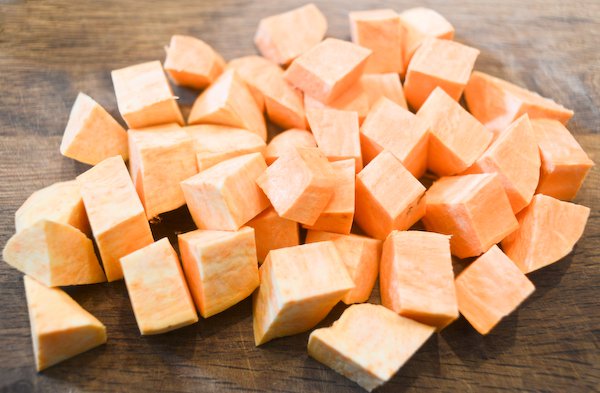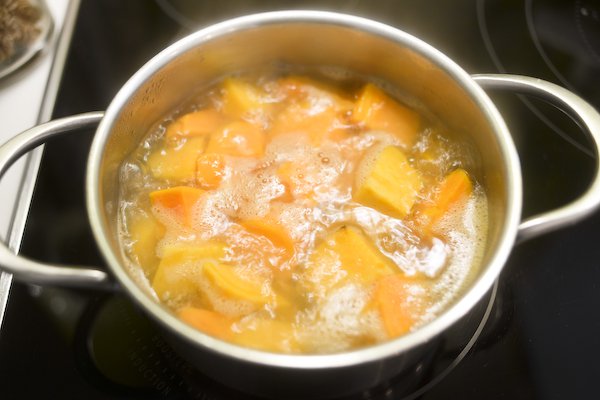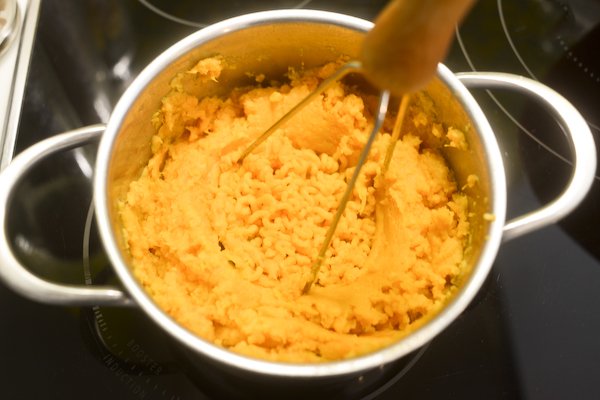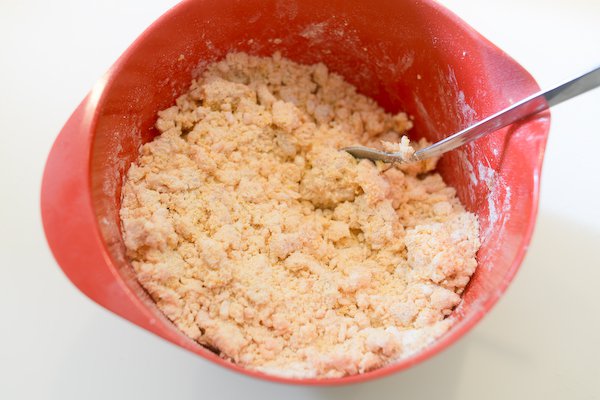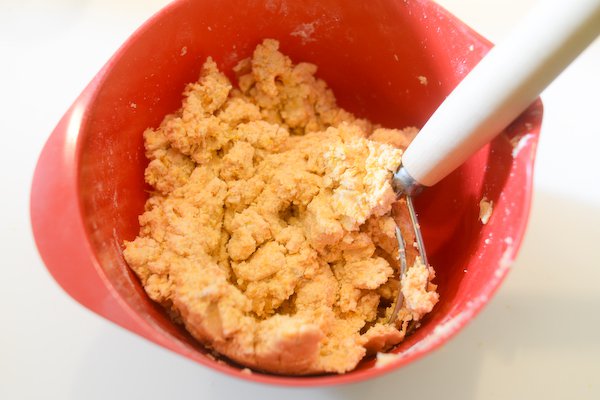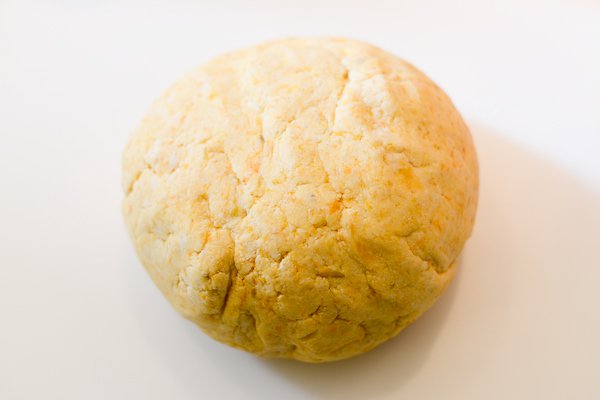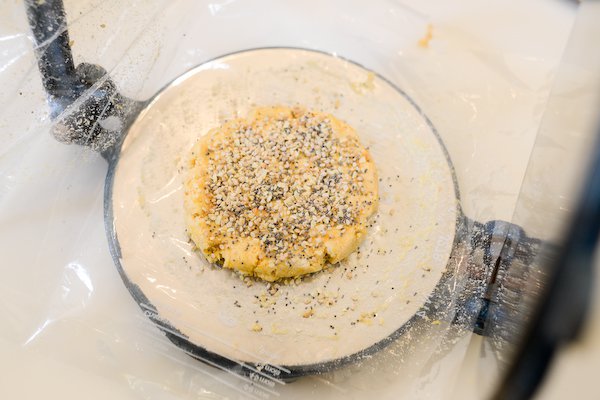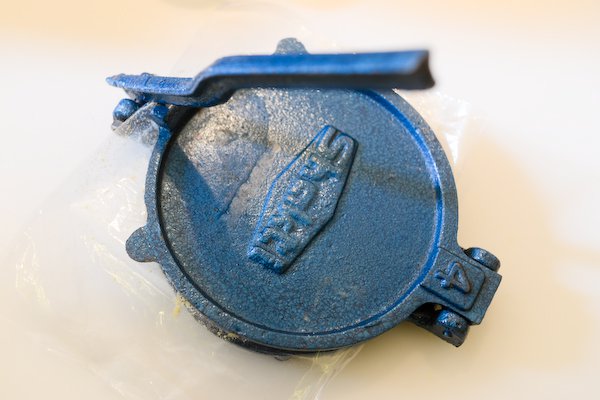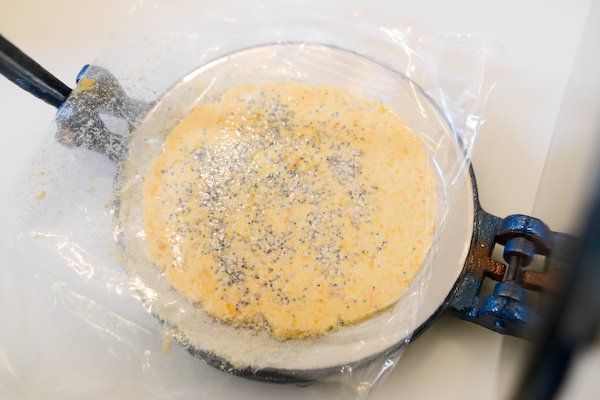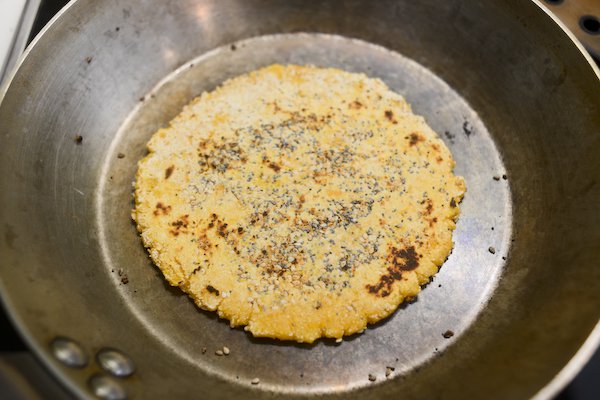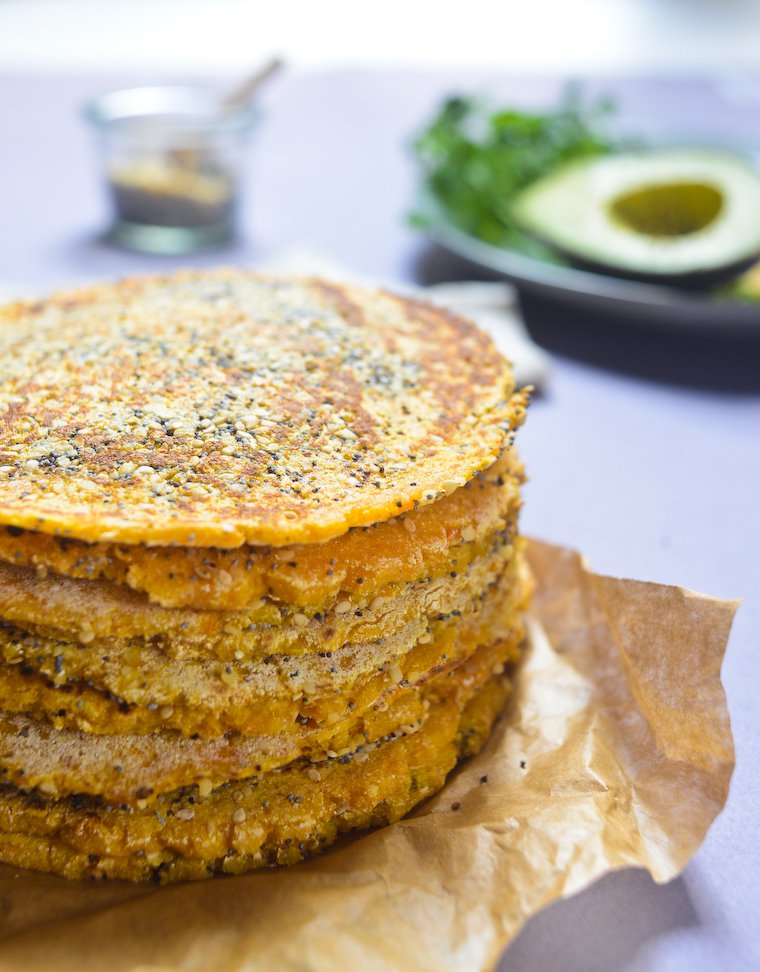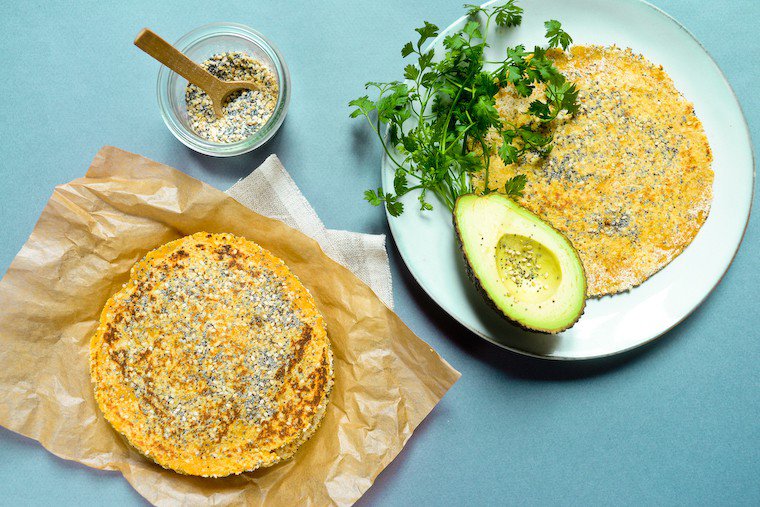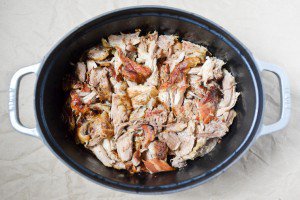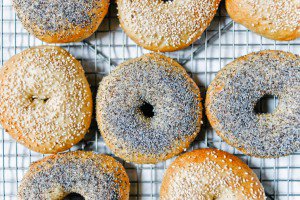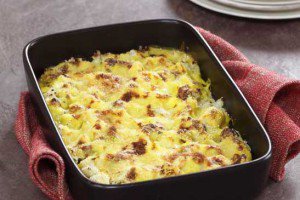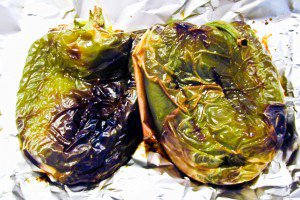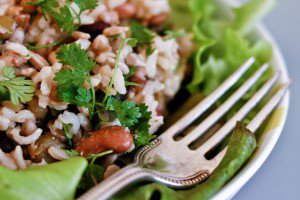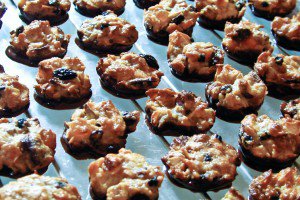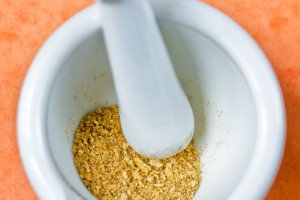In honor of International Sweet Potato Week (yes, it’s a thing!), let me share my life-altering recipe for sweet potato flatbreads, seasoned with an “everything” spice mix.
This is originally inspired by a reader named Jo, who commented on my 40 Ways to Cook Sweet Potatoes post, saying that she made such flatbreads and sold them from her market stand along with other breads. Such a simple, brilliant idea stuck in my head, and I vowed to try it soon.
Making grain-free sweet potato flatbreads
Jo generously explained that she makes her sweet potato flatbreads with a 1:1 mix of puréed sweet potatoes and all-purpose flour, but for both color and flavor, I decided to lean more heavily on the sweet potato and used a 2:1 ratio instead.
I also chose to make my sweet potato flatbreads with cassava flour (farine de manioc in French), which I’ve been experimenting with lately. Cassava is the tuberous root from which tapioca starch is extracted, and it is ground into a grain-free (by definition), gluten-free, paleo-friendly* flour that is quite extraordinary: it is a much better binder than other gluten-free flours, and it yields beautifully pliable flatbreads or tortillas.
Want to see just how pliable?
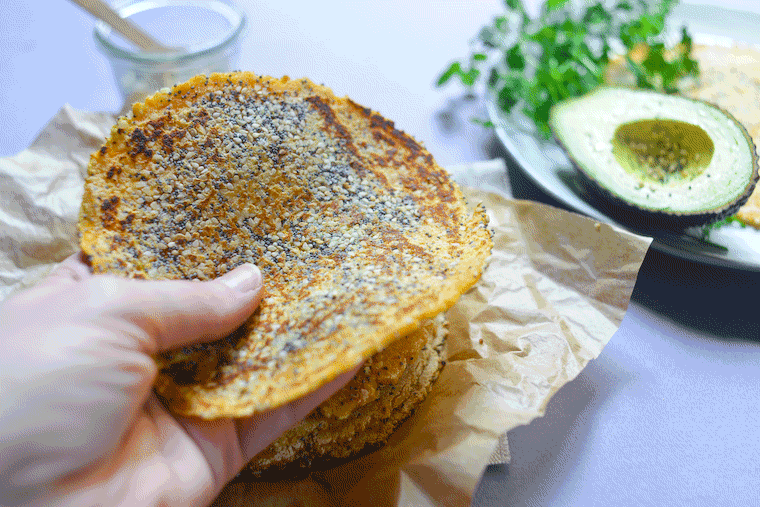
Cassava flour is a staple ingredient in many tropical countries, so you’re likely to find it in Latin American, African, or Asian markets. And because it is becoming a hot ingredient in the Western world, you can also buy it at natural foods stores or online. However, if you can’t (or don’t want to) find it, just use all-purpose flour or your favorite all-purpose gluten-free flour mix.
To shape the flatbreads, I used the tortilla press I got an embarrassingly long time ago, and only started using recently — but intensively so. It is one of those heavy, traditional cast-iron presses that seem pretty basic, but work quite well and are very fun to use. The common trick to using a tortilla press is to place the ball of dough between two layers of a split-open freezer bag, so the dough doesn’t stick to the press irretrievably. (One has to wonder how people pressed tortillas before the advent of the freezer bag.)
In the mile-long list of cooking ideas that I keep (along with a gajillion other tasks and projects) in Wunderlist, I had also noted that I wanted to create a recipe that would have an “everything” topping on it. This was most recently reinforced by a photo of an everything croissant from Neighbor Bakehouse in San Francisco, spotted on my friend David’s Instagram.
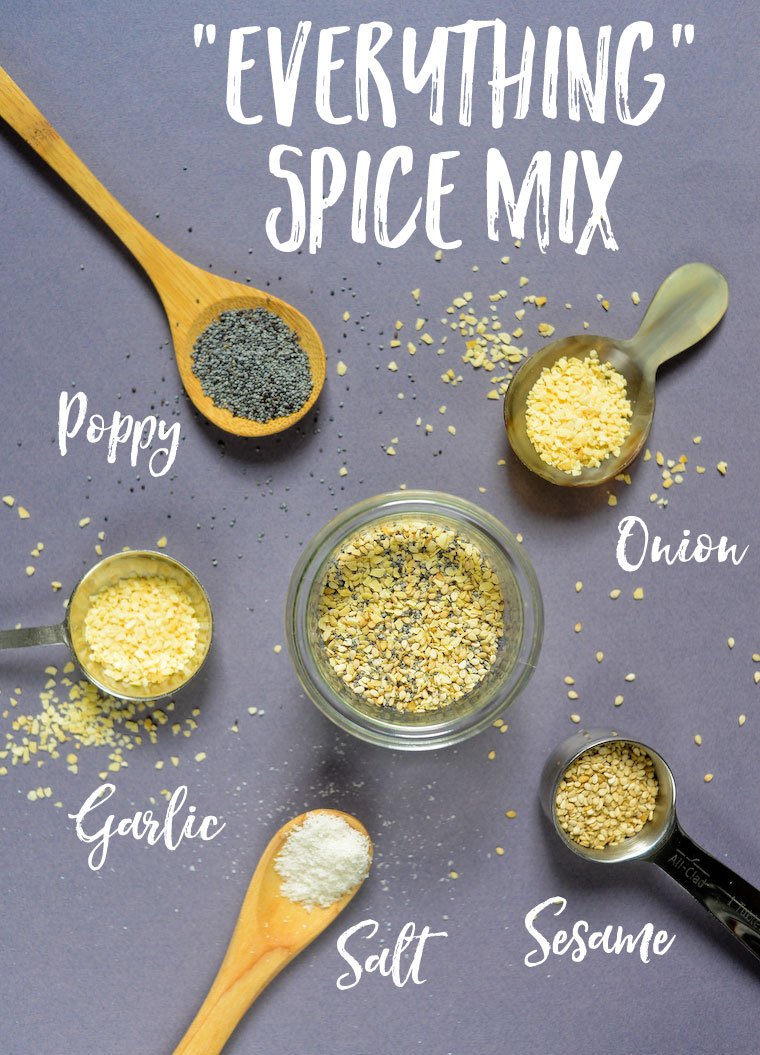
What’s in the “everything” spice mix?
I’ve always been a big fan of the “everything” bagel topping typically offered in New York-style bagel shops. Maybe not for breakfast (hello, garlic breath before 10!), but at lunchtime? Yes!
I have on occasion recreated it at home to garnish my homemade sourdough bagels, but David’s photo made me want to branch out and use it again in a non-bagel recipe. These sweet potato flatbreads seemed the perfect canvas (and I could check two ideas off my list).
The classic “everything” seasoning mix contains poppy seeds, sesame seeds, dried garlic flakes, dried onion flakes, and salt. (Some people add caraway seeds to theirs, but it’s controversial and I find it a bit overpowering; I’ll let you decide whether to add it to your own rendition.) And it couldn’t be easier to make: just measure and mix!
Consider making double the recipe for the “everything” seasoning and keeping the extra in a little spice jar for your next batch of olive oil crackers, or simply to add oomph to your salads and season a tray of roasted vegetables.
My sweet potato flatbreads in action
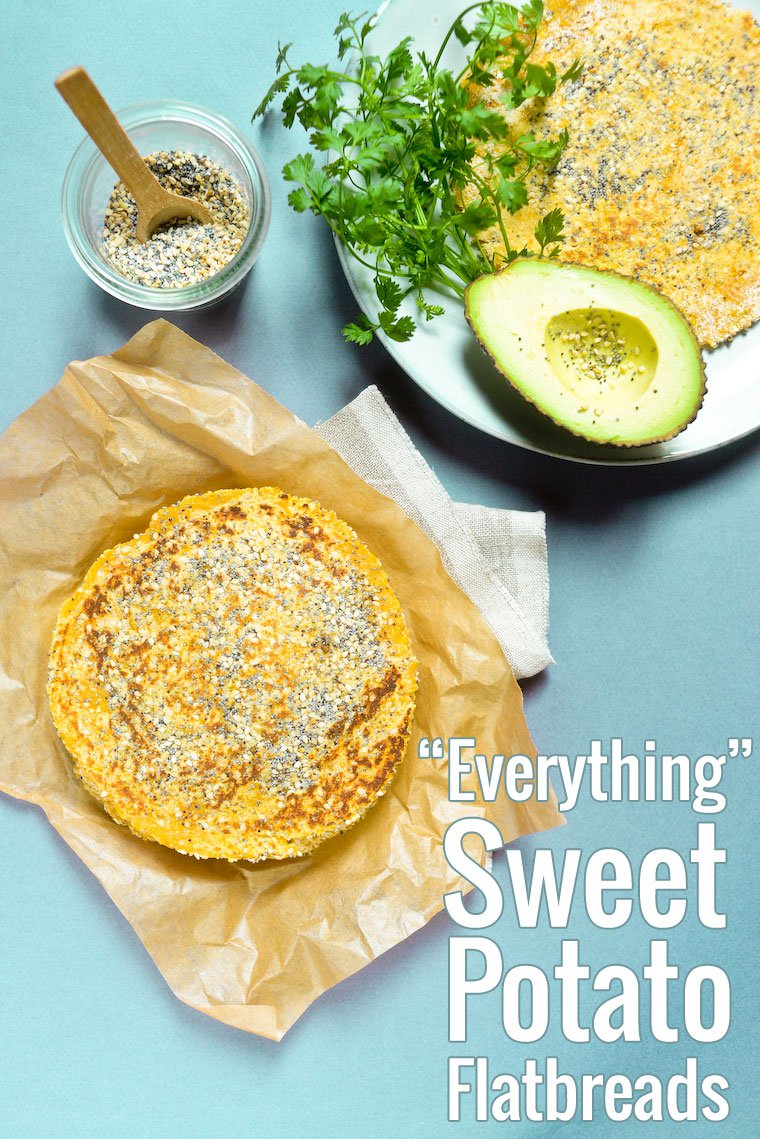
Once the sweet potato flatbreads are shaped and seasoned, it’s just a matter of cooking them in a dry skillet (this is the one I love), a minute or so on each side, and stacking them on a covered plate to keep nice and warm until ready to serve.
And they are just. so. good. Lightly crisp at the edges, but tender and chewy when you bite in, they offer subtle notes of caramelized sweet potato, and a good structure that bends and folds around whatever filling you choose for them.
We’ve eaten them like we would corn tortillas, taco-style, with avocado, crunchy raw vegetables, herbs, and salsa. And we’ve also used them as a side to a fried egg, a soup, a vegetable stew, or my easy fish curry. All delicious.
Want more amazing sweet potato recipes?
Follow my sweet potato board on Pinterest!
This post is sponsored by the American Sweet Potato Marketing Institute; visit their website for more information and recipes to use the delicious sweet potato! All words and opinions are my own. Thank you for supporting the organizations who support Chocolate & Zucchini.
* If you’re following a paleo diet to control blood sugar issues, keep in mind that cassava flour has a pretty high glycemic load, so it may not be an ideal fit for you.

Have you tried this? Share your pics on Instagram!
Please tag your pictures with #cnzrecipes. I'll share my favorites!
Ingredients
- 500 grams (1 pound 2 ounces) sweet potatoes
- 250 grams (9 ounces) cassava flour or all-purpose flour
- 1 teaspoon fine sea salt
- 1 tablespoon fine sea salt
- 1 tablespoon sesame seeds
- 1 tablespoon poppy seeds
- 1 tablespoon dried garlic flakes
- 1 tablespoon dried onion flakes
- 1 tablespoon caraway seeds (controversial!)
Instructions
- Peel the sweet potatoes and cut them into big cubes.
- Place in a saucepan, cover with cold water, and bring to a simmer. Cook for 15 minutes, or until soft when tested with the tip of a knife.
- Drain over a bowl, saving the cooking water.
- Mash the sweet potatoes finely with a potato masher or ricer (a fork will do in a pinch). Transfer to a mixing bowl and allow to cool slightly.
- Add in the flour and combine with a fork.
- Stir in 120 ml (1/2 cup) of the cooking water to start, then add some more, little by little, until the dough comes together. (A dough whisk is perfect for this.) The exact amount will depend on your sweet potatoes and your flour.
- Turn the dough out on a clean work surface and knead it briefly to form a smooth ball.
- Divide into 12 even pieces, each about 70 grams (2 1/2 ounces), roll the pieces into balls, and arrange on a cookie sheet lined with parchment paper.
- Combine all the ingredients for the everything seasoning mix in a small bowl.
- Cut a large freezer bag on two sides so it opens like a book. Place a ball of dough in the middle and slip the whole thing inside a tortilla press. (If you don't have a tortilla press, I won't fault you; just use a flat-bottomed plate or rolling pin)
- Press gently to spread the dough out halfway, and sprinkle with 1 teaspoon of the everything mix.
- Press again all the way down. I like the flatbreads not to be too thin, so I don't press the lever down fully, but it's a matter of preference: try different thicknesses to see what you prefer.
- Heat a dry skillet over medium-high heat.
- Carefully peel off the top layer of freezer bag from the flatbread. Flip the exposed flatbread onto your open palm, carefully peel off the second layer of freezer bag, then slide the flatbread gently into the skillet.
- Allow to cook for 1 minute, until the edges start to dry up.
- Flip and cook for 1 minute on the other side, until nicely browned.
- While one flatbread is cooking, press and season the next so you can cook them one after the other.
- Stack the cooked flatbreads on a plate as you go, and cover with a clean kitchen towel to keep warm.
- Serve immediately, with an assortment of fillings (avocado, crudités, salsa, fresh herbs...) or as a side to a soup, vegetable stew, or easy fish curry.
- You can also cook the flatbreads in advance; they will keep for up to 2 days, covered and refrigerated. Reheat in a dry skillet for 30 seconds on each side.
